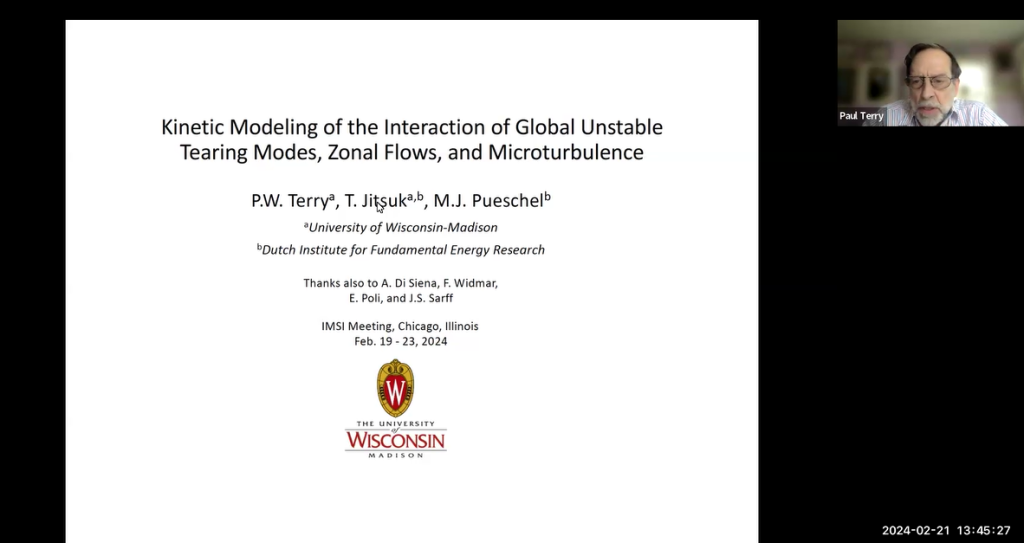Kinetic Modeling of the Interaction of Global Unstable Tearing Modes, Zonal Flows, and Microturbulence
Presenter
February 21, 2024
Event: 51881
Abstract
Plasmas in the reversed field pinch (RFP), a type of toroidal magnetic confinement device, are characterized by a robust turbulent cascade that physically links unstable tearing modes at global scales to unstable drift waves at microscales. Efforts to model this complex and phenomenologically rich multiscale interaction using gyrokinetic simulation are described. The gyrokinetic code GENE is used, a delta-f solver with global nonlinear simulation capability in toroidal geometry. To properly describe tearing-mode instability, which historically has been analyzed in the resistive MHD framework, a nonuniform equilibrium current profile consistent with discharges in the Madison Symmetric Torus RFP is incorporated in GENE via a shifted Maxwellian background distribution with a radially varying shift. This new capability for GENE has been extensively and successfully tested via benchmarks and comparisons with other gyrokinetic codes, fluid codes, and analytic theory. The benchmarks assess the fidelity of numerical modeling of the tearing-mode instability in terms of growth rates, frequencies, and scalings with key parameters. Comparisons between the new global capability and prior flux-tube calculations have also been made of the instability properties of the dominant trapped-electron-mode (TEM) microinstability in thesedischarges. Multiscale simulations have examined the effect of tearing modes on the zonal flows excited by TEM turbulence. The magnetic fluctuations of saturated tearing modes are observed to erode the zonal flows. Then, because zonal flows regulate the saturation level of TEM turbulence, the heat flux driven by TEM turbulence is considerably higher in the presence of the tearing-mode turbulence. This confirms earlier theoretical hypotheses and reduced gyrokinetic models that represented the tearing modes as a external magnetic perturbation. It also establishes gyrokinetics as a model for addressing the wealth of physics in the RFP multiscale turbulent fluctuationspectrum.
Collaborators: T. Jisuk (University of Wisconsin, Madison) and M.J. Puescel (Dutch Institute for Fundamental Energy Research)
